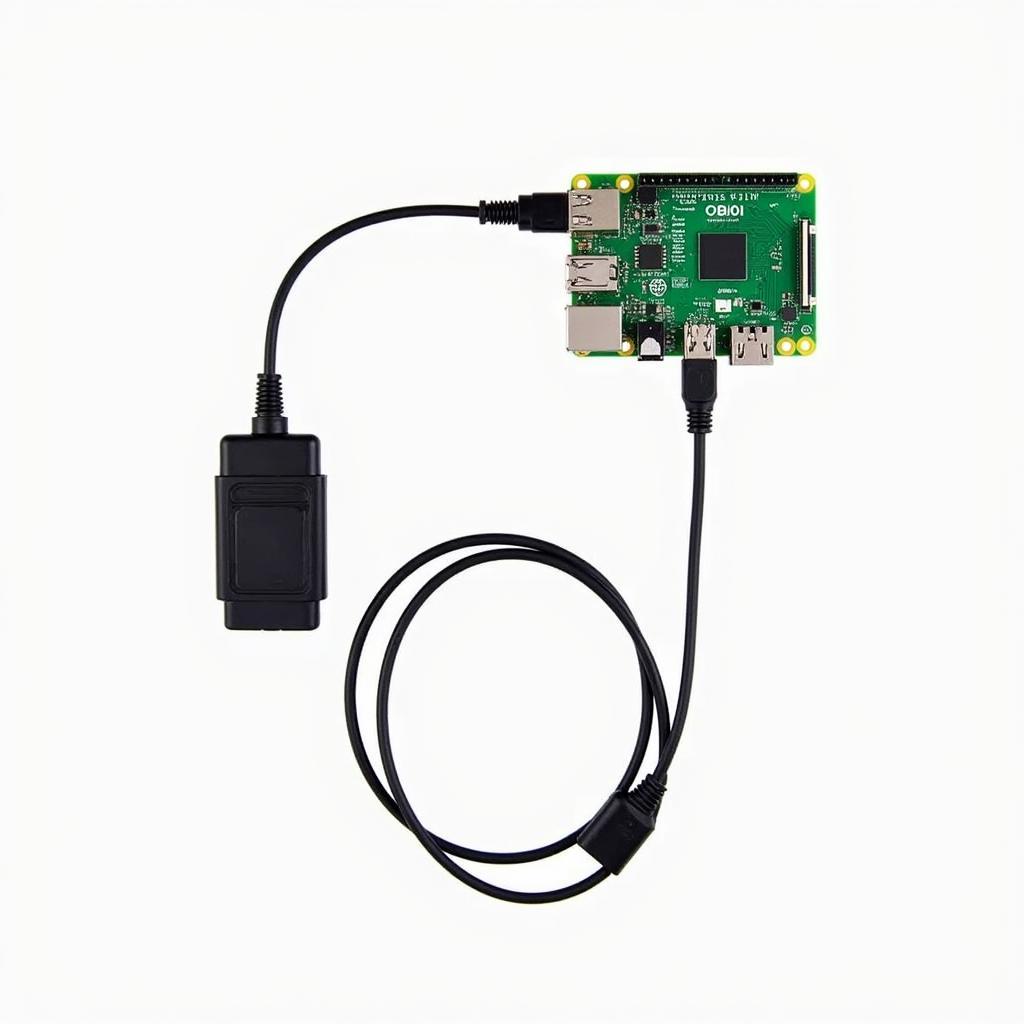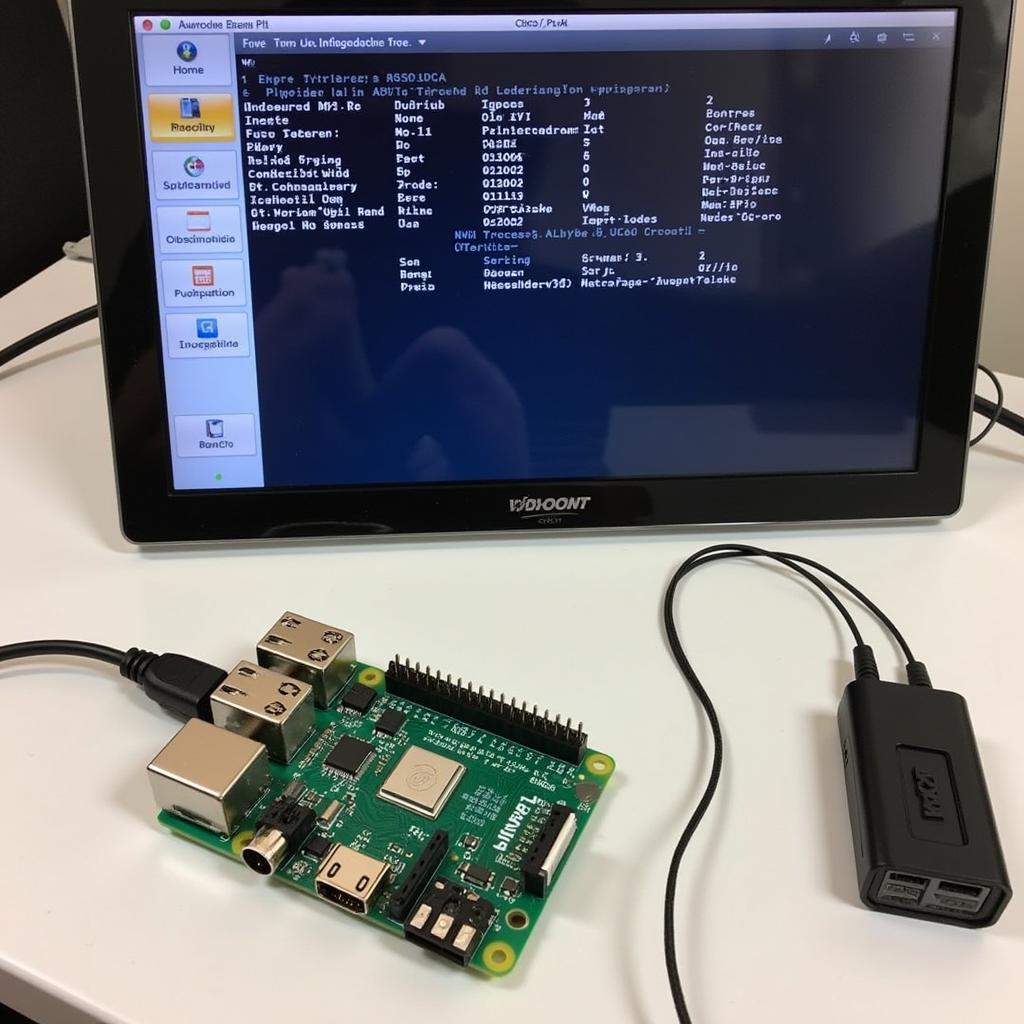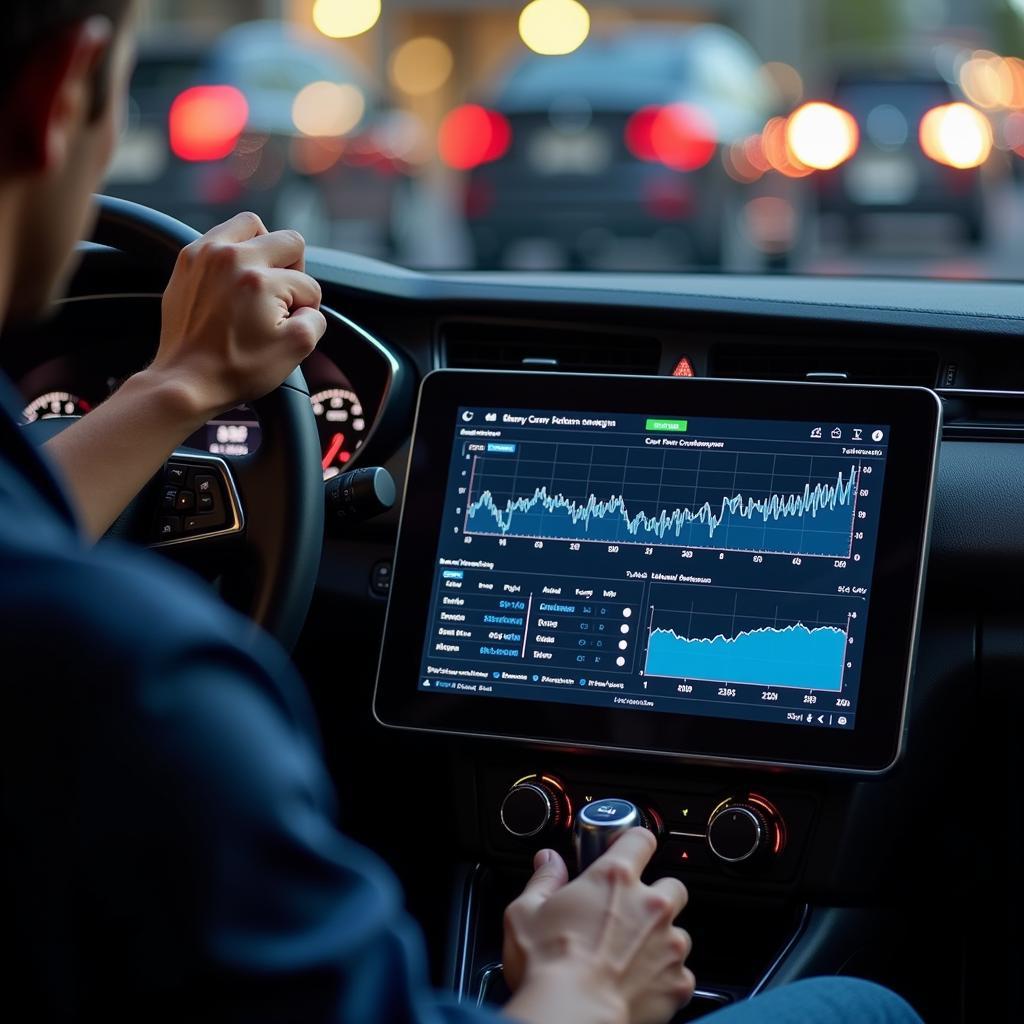Imagine effortlessly accessing a treasure trove of information about your car’s health and performance, all through a device as simple as a Raspberry Pi. This is the power of using an RPI to read car diagnostic info, a game-changer for both car enthusiasts and everyday drivers alike.
Gone are the days of relying solely on cryptic dashboard lights and expensive mechanic visits. With an RPI and the right software, you can delve into your car’s onboard computer, understand those pesky error codes, and potentially even diagnose issues yourself.
How Does RPI Read Car Diagnostic Info?
The magic lies in the OBD-II port, a standardized connector found in most cars manufactured after 1996. This port acts as a gateway to your car’s internal network, constantly monitoring various systems and storing diagnostic data.
An RPI, with its versatility and processing power, acts as the brain of the operation. By connecting it to the OBD-II port using a compatible cable and running specialized software, you can tap into this data stream and unlock a wealth of information.
 Connecting Raspberry Pi to OBD-II Port
Connecting Raspberry Pi to OBD-II Port
Benefits of Using RPI for Car Diagnostics
Using an RPI for car diagnostics offers a range of advantages, making it an increasingly popular choice for car owners:
- Cost-effectiveness: Compared to professional diagnostic tools, an RPI setup is significantly more affordable, especially for DIY enthusiasts.
- Flexibility and Customization: The open-source nature of RPI allows for customization, enabling you to tailor the software and functionality to your specific needs.
- Real-time Monitoring: Monitor live data streams like engine RPM, coolant temperature, and fuel efficiency, giving you a deeper understanding of your car’s performance.
- Early Problem Detection: By analyzing diagnostic codes and sensor readings, you can potentially identify issues before they escalate into major problems.
Getting Started: RPI Read Car Diagnostic Info
Ready to embark on your DIY car diagnostics journey? Here’s a simplified guide:
- Gather your tools: A Raspberry Pi (model 3 or later recommended), an OBD-II to USB cable, a microSD card, and a power source for the RPI.
- Install the software: Download and install compatible diagnostic software onto your microSD card. Popular choices include OBD2, Torque Pro, and OpenDiag.
- Connect and configure: Connect the RPI to the OBD-II port in your car, usually located under the dashboard. Power up the RPI and configure the software to communicate with your car’s ECU (Engine Control Unit).
 Setting up Raspberry Pi for Car Diagnostics
Setting up Raspberry Pi for Car Diagnostics
Understanding the Data: Making Sense of Diagnostic Codes
One of the key features of using an RPI for car diagnostics is the ability to read and interpret diagnostic trouble codes (DTCs). These alphanumeric codes, stored in your car’s ECU, provide clues about potential issues within various systems.
For instance, a code like “P0301” indicates a misfire in cylinder 1. While not a definitive diagnosis, this information provides a valuable starting point for further investigation. Numerous online resources and DTC databases can help you decipher these codes.
Beyond Basic Diagnostics: Advanced Capabilities
The potential of using an RPI for car diagnostics extends far beyond simply reading error codes. With the right software and knowledge, you can:
- Log data: Record and analyze data over time, helping you identify patterns and potential issues that might otherwise go unnoticed.
- Customize dashboards: Create personalized dashboards to display the data most relevant to you, from real-time performance metrics to historical fuel efficiency trends.
- Program and configure: With advanced knowledge, you can potentially access and modify certain settings within your car’s ECU, allowing for custom tuning and modifications.
 Advanced Car Diagnostics with Raspberry Pi
Advanced Car Diagnostics with Raspberry Pi
RPI Read Car Diagnostic Info: Empowering Car Owners
In an era of increasingly complex vehicles, using an RPI to read car diagnostic info provides a powerful and accessible way for car owners to take control of their vehicle’s health. Whether you’re a seasoned mechanic or a curious car enthusiast, the RPI opens up a world of possibilities for understanding, monitoring, and potentially even repairing your own car.
Remember, while an RPI can be a valuable tool for car diagnostics, it’s crucial to approach DIY repairs with caution. Always consult with a qualified mechanic for complex issues or if you’re unsure about any aspect of the diagnostic process.
FAQs about Using RPI to Read Car Diagnostic Info
1. Can I use any Raspberry Pi model for this?
While most models can work, a Raspberry Pi 3 or later is recommended for smoother performance and better compatibility with diagnostic software.
2. Is it legal to use an RPI for car diagnostics?
Yes, using an RPI to read car diagnostic info is generally legal. However, modifying your car’s ECU without proper knowledge or authorization might void your warranty or even be illegal in some areas.
3. Where can I find reliable diagnostic software?
Several reputable options are available, including OBD2, Torque Pro, and OpenDiag. These often offer free versions with the option to upgrade for advanced features.
4. What if I encounter a diagnostic code I don’t understand?
Numerous online resources and DTC databases provide detailed information about specific codes. You can also consult with a qualified mechanic for further assistance.
5. Can an RPI diagnose all car problems?
While RPI can provide valuable insights, it might not diagnose every issue. Complex mechanical or electrical problems may still require professional diagnosis and repair.
6. Can I damage my car by using an RPI for diagnostics?
Using an RPI for reading diagnostic information is generally safe. However, improper handling or attempting unauthorized modifications to your car’s systems could potentially cause damage.
7. Do I need to be tech-savvy to use RPI for car diagnostics?
While some technical knowledge is helpful, the increasing user-friendliness of diagnostic software and the availability of online resources make it accessible even for beginners.
Need help with car diagnostics or want to explore the world of RPI for car enthusiasts? Contact us on WhatsApp: +1(641)206-8880, Email: [email protected]. We have a team available 24/7 to assist you!

Leave a Reply